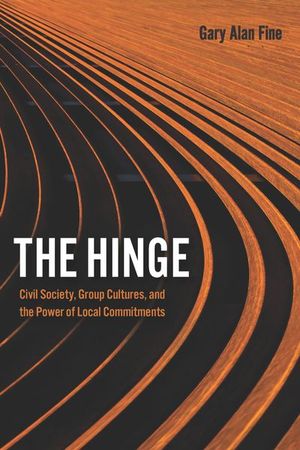The Hinge
Published by The University of Chicago Press
Most of the time, we believe our daily lives to be governed by structures determined from above: laws that dictate our behavior, companies that pay our wages, even climate patterns that determine what we eat or where we live. In contrast, social organization is often a feature of local organization. While those forces may seem beyond individual grasp, we often come together in small communities to change circumstances that would otherwise flatten us. Challenging traditional sociological models of powerful forces, in The Hinge, Gary Alan Fine emphasizes and describes those meso-level collectives, the organizations that bridge our individual interests and the larger structures that shape our lives. Focusing on “tiny publics,” he describes meso-level social collectives as “hinges”: groups that come together to pursue a shared social goal, bridging the individual and the broader society. Understanding these hinges, Fine argues, is crucial to explaining how societies function, creating links between the micro- and macro-orders of society. He draws on historical cases and fieldwork to illustrate how these hinges work and how to describe them. In The Hinge, Fine has given us powerful new theoretical tools for understanding an essential part of our social worlds.
BUY NOW FROM
COMMUNITY REVIEWS

